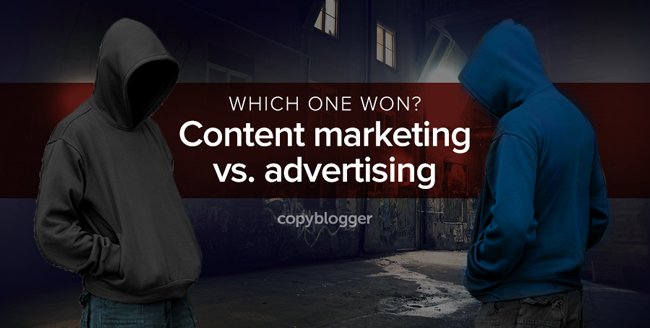
Content Marketing vs. Paid Ads: Which Strategy Wins?”
Posted on January 4, 2023
In digital marketing, businesses constantly seek effective strategies to reach their target audience and achieve their goals. Two prominent approaches are content marketing and paid advertising. Both have unique strengths and weaknesses and choosing the right one—or deciding how to balance both—can significantly impact a company’s success. In this blog post, we’ll explore the differences between content marketing and paid ads, their advantages and disadvantages, and ultimately help you decide which strategy might best fit your business.
Understanding Content Marketing
What is Content Marketing?
Content marketing focuses on creating and distributing valuable, relevant content to attract and engage a clearly defined audience. The primary goal is to drive profitable customer action by building trust and credibility over time. Common formats include blog posts, articles, videos, infographics, podcasts, and social media content.
Advantages of Content Marketing:
- Cost-Effectiveness: While creating high-quality content requires investment, it often yields long-term results without the need for continuous spending. Once established, a well-optimized blog post or video can attract organic traffic for years.
- Brand Authority: Regularly publishing valuable content helps position your brand as an industry expert. This authority can lead to increased trust and customer loyalty.
- SEO Benefits: Quality content enhances your search engine optimization (SEO) efforts. By targeting relevant keywords and providing useful information, you improve your chances of ranking higher in search results.
- Engagement and Community Building: Content marketing fosters deeper engagement with your audience. Through comments, shares, and discussions, you can build a community around your brand.
- Flexibility: You can tailor your content marketing strategy to different platforms and formats, allowing for a versatile approach that adapts to changing audience preferences.
Disadvantages of Content Marketing:
- Time-Consuming: Creating high-quality content requires time and effort, which can be a drawback for businesses seeking quick results.
- Delayed Results: Unlike paid ads, content marketing often requires a longer lead time to see significant traffic and engagement.
- Need for Expertise: Producing compelling content demands creativity, research, and writing skills. Businesses may need to invest in training or hire skilled professionals.
Understanding Paid Ads
What are Paid Ads?
Paid advertising, often referred to as pay-per-click (PPC) advertising, involves paying for ad placements on platforms like Google, Facebook, Instagram, or other websites. The goal is to drive traffic to your website or landing page quickly.
Advantages of Paid Ads:
- Immediate Results: One of the biggest advantages of paid ads is the ability to generate traffic almost instantly. Once your ad is live, it can start driving clicks and conversions right away.
- Targeted Reach: Paid advertising platforms offer advanced targeting options, allowing you to reach specific demographics, interests, and behaviors. This precision ensures your ads are shown to the most relevant audience.
- Measurable ROI: Paid ads provide detailed analytics, enabling you to track performance metrics such as clicks, conversions, and return on ad spend (ROAS). This data allows for quick adjustments to optimize your campaigns.
- Brand Visibility: Running ads increases brand visibility and awareness, especially for new businesses or those entering a competitive market.
- Control Over Budget: You can set and adjust your budget according to your marketing goals. This flexibility allows you to experiment with different strategies without a large upfront investment.
Disadvantages of Paid Ads:
- Costly Over Time: While you can achieve immediate results, the costs can add up quickly. If you rely solely on paid ads, your marketing efforts may become unsustainable.
- Ad Fatigue: Audiences may become desensitized to ads, leading to reduced effectiveness over time. Frequent exposure can cause users to ignore your ads altogether.
- Short-Lived Impact: Once you stop funding your ads, the traffic typically drops off significantly, making it a less sustainable long-term strategy compared to content marketing.
Comparing Effectiveness
When considering which strategy wins, it’s essential to recognize that both content marketing and paid ads serve different purposes.
- Long-Term vs. Short-Term: If your goal is long-term growth and brand loyalty, content marketing is likely the better choice. It builds a solid foundation for your brand and keeps delivering value over time. On the other hand, if you need immediate sales or traffic, paid ads may be more effective in the short run.
- Audience Engagement: Content marketing fosters engagement and builds relationships with your audience, while paid ads can lead to quick conversions but may not create a lasting connection.
- Cost Efficiency: For businesses with a limited budget, content marketing can often yield more significant results over time. In contrast, paid ads can be more suitable for larger budgets that can sustain ongoing campaigns.
Conclusion: Which Strategy Should You Choose?
Ultimately, the decision between content marketing and paid ads depends on your business goals, budget, and target audience. Many successful businesses find that a hybrid approach works best, leveraging the strengths of both strategies.
- Start with content marketing to build brand authority, improve SEO, and engage your audience.
- Utilize paid ads to boost traffic and sales during key campaigns or product launches.
Incorporating both strategies can create a well-rounded marketing plan that drives both immediate results and long-term growth. Evaluate your business objectives, experiment with different tactics, and continuously analyze your results to find the right balance for your marketing efforts. By understanding the unique benefits of each approach, you can craft a strategy that truly resonates with your audience and drives success.
